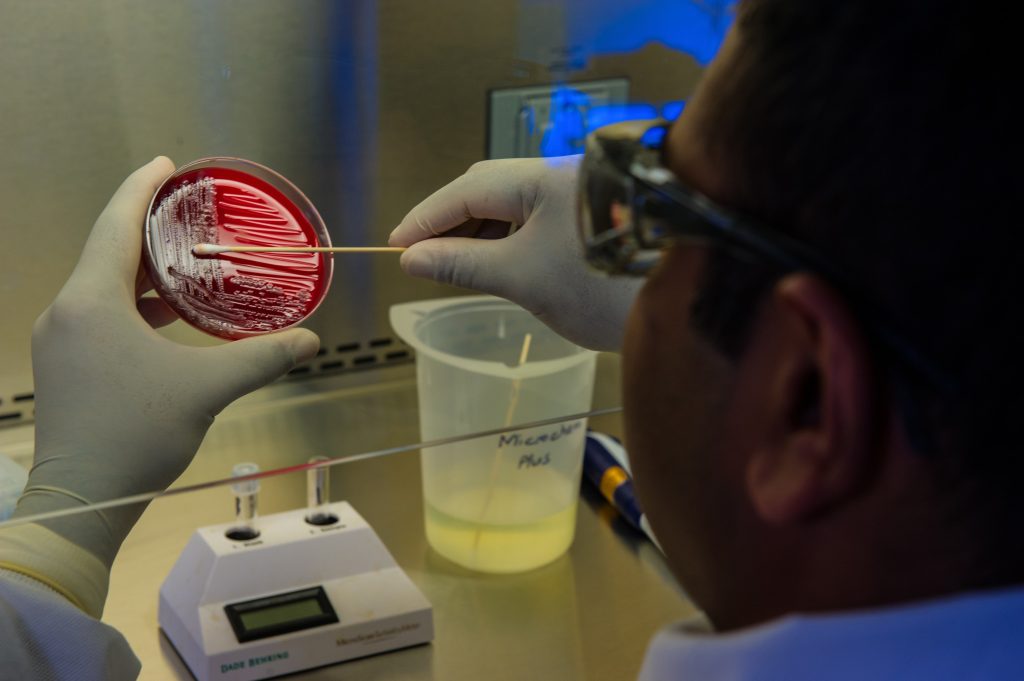What are the benefits of studying microbiology in Nigeria?
Studying microbiology in Nigeria can provide students with an array of benefits, both in terms of personal and professional development.
With the right combination of theoretical knowledge and practical skills, students can gain invaluable insight into the world of microbiology, as well as its importance to the Nigerian healthcare system.
We will look at the various advantages of studying microbiology in Nigeria and how it can help you build a successful career.
What is microbiology?

Microbiology is the study of microorganisms, also known as microbes. These are minute, simple life forms that include bacteria, archaea, algae, fungi, viruses, protozoa, and some types of parasites.
That is not all, microbiology involves the studying of the biology, genetics, evolution, and ecology of this microorganism as well as their interactions with other organisms including humans and animals and their environment.
How many years does it take to study microbiology in Nigeria?
It takes four (4) years to study microbiology, to earn a Bachelor’s degree. However, this is not the case for direct entry and JUPEB students.
Which university is best for microbiology in Nigeria?
- University of Nigeria, Nsukka
- University of Ibadan
- University of Benin
- Covenant University
- Federal University of Technology, Akure
- Obafemi Awolowo University
- University of Lagos
- University of Calabar
- Bayero University, Kano
What is the work of microbiology in Nigeria?
Microbiologists in Nigeria work in a variety of settings, including research and development, academia, industry, and healthcare. Medical sales representatives, laboratory scientists, and infection control consultants are just a few of the job opportunities for microbiologists in Nigeria.
Can I study microbiology without physics?
Different institutions have different admission requirements. The right thing to do is to check with the specific university you are interested in to confirm their admission requirement.
For instance, at the University of Benin, you cannot study microbiology without physics because physics is a required subject for admission.
Can I study microbiology without chemistry?
Each university has its own set of admission requirements, so it’s always a good idea to double-check the specifics of the institution you’re interested in. For example, studying microbiology at the University of Benin requires a background in chemistry, as it is a prerequisite for admission.
Can I study microbiology with a D7 in physics?
There are some universities that accept a D7 in physics for you to be admitted to study microbiology, while others may require at least a C6 in Physics.
15 benefits of studying microbiology in Nigeria
These are just a few examples of the many benefits of studying microbiology in Nigeria. These benefits are applicable to other countries as well.
Individuals who have studied Microbiology have a diverse range of career options available to them.
These include roles in environmental microbiology, water and sewage treatment, medical microbiology, research assistance, teaching, sales representatives for science-related companies, agricultural procedures, food microbiology, petroleum microbiology, clinical microbiology, and pharmaceutical and quality control personnel, among others.
There are many opportunities to pursue a degree in Microbiology.
The benefits of studying microbiology in Nigeria include:
- Nigeria is a country that battles a lot of infectious diseases such as malaria, tuberculosis, and typhoid fever. Microbiology students learn how microorganisms cause diseases, how they spread, and how they can be prevented and treated.
- Developing vaccines and antibiotics to fight bacterial, viral, and fungal infections because microbiology provides career opportunities in hospitals and research laboratories.
- Exploring the potential of probiotics to promote good health and prevent disease.
- Developing bioremediation techniques to clean up environmental pollution because microorganisms can help break down pollutants in the environment since Nigeria is known for petroleum spillage.
- Studying the role of microbes in food production, including fermentation and preservation. Akpu and other Nigerian products are products of fermentation.
- Developing agricultural techniques that rely on microorganisms to improve soil health and crop yields
- Understanding the role of microorganisms in the ecosystem and their impact on environmental processes
- Studying the genetics of microorganisms to better understand evolution and genetic diversity
- Developing new biotechnologies for industry, such as the production of biofuels and bioplastics
- Investigating the role of microorganisms in the human microbiome and how they affect our health and well-being
- Developing new diagnostic tools and techniques for the detection of infectious diseases and environmental contaminants
- Studying the potential of microorganisms in bioreactor technology to produce bio-based chemicals and materials
- Investigating the use of microbial biofilms to develop new materials and technologies
- Developing medical and industrial applications of bacteriophages, which are viruses that can infect and kill bacteria
- Improving food safety and quality by studying the role of microorganisms in foodborne illnesses and their prevention.
What Next?
Microbiology is also a field with a lot of career opportunities, and studying in Nigeria provides students with research opportunities that can contribute to global public health issues.
If you are interested in studying microbiology, go on.
Read Next
Can I study medicine after microbiology in Nigeria?
History of Microbiology in Nigeria
Is microbiology a good career in Nigeria
Can you use the gram staining protocol on mycoplasma
